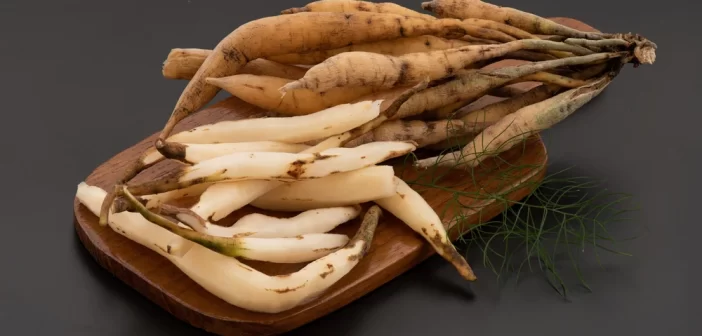Jadhav highlighted the importance of Shatavari in achieving the Panch Pran Goal outlined by Prime Minister Narendra Modi during his Independence Day speech on August 15, 2022. He emphasized that the Prime Minister’s vision of making India a developed nation by its 100th Independence Day in 2047 includes the Shatavari plant as a key resource for improving women’s health in India.
The Minister also praised the significant progress made by the Ministry of Ayush over the past decade and lauded the efforts of the National Medicinal Plants Board (NMPB) in launching this new initiative. “These initiatives have contributed to spreading knowledge of the health benefits of medicinal plants across the country,” Jadhav said.
Shatavari, also known as Asparagus racemosus, is a medicinal plant widely used in Ayurveda. It is known for its numerous health benefits, especially for women’s health. Some of the key benefits of Shatavari include:
- Hormonal Balance: Shatavari is renowned for its ability to balance hormones, making it beneficial for women experiencing menstrual irregularities, menopause symptoms, and hormonal imbalances.
- Boosting Fertility: The herb is known to enhance fertility by supporting the reproductive system. It is often recommended for women facing issues with conception.
- Enhancing Immunity: Shatavari is an adaptogenic herb, which means it helps the body cope with stress and strengthens the immune system, protecting against infections and diseases.
- Digestive Health: The plant has soothing properties that can aid in digestion and alleviate gastrointestinal issues such as acidity, ulcers, and diarrhea.
- Anti-inflammatory Properties: Shatavari has anti-inflammatory properties that can help reduce inflammation in the body, providing relief from conditions such as arthritis and other inflammatory disorders.
- Lactation Support: The herb is known to promote lactation in breastfeeding mothers, making it a valuable resource for postnatal care.
Vaidya Rajesh Kotecha, Secretary, Ministry of Ayush, elaborated on the activities and achievements of NMPB in promoting medicinal plants. He shared insights into the Central Sector Scheme for the Conservation, Development, and Sustainable Management of Medicinal Plants, which aims to ensure the long-term preservation and cultivation of important medicinal species, including Shatavari.
“Shatavari is especially beneficial for women’s health,” said Dr. Mahesh Kumar Dadhich, CEO of NMPB, highlighting its medicinal importance. He also discussed the agro-economic potential of this plant and announced that financial assistance amounting to Rs 18.9 lakh will be provided to eligible organizations to support the campaign, fostering greater awareness and wider adoption of Shatavari in the public health landscape.
With the launch of this campaign, the Ayush Ministry aims to increase awareness about the health benefits of Shatavari and encourage its use among the public. The campaign aligns with the broader goal of holistic well-being and the enhancement of women’s health, contributing to the overall development of the nation.





